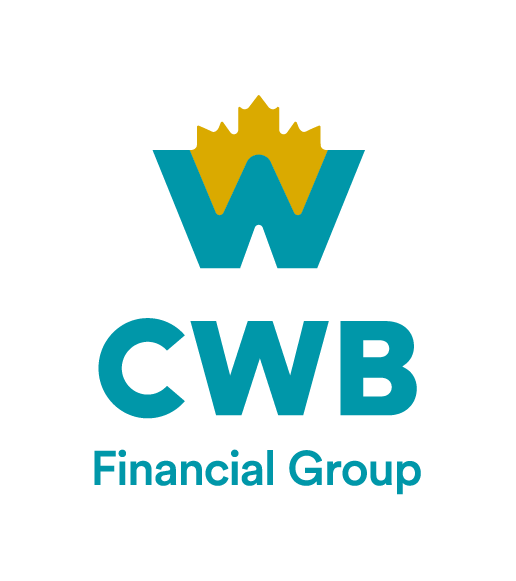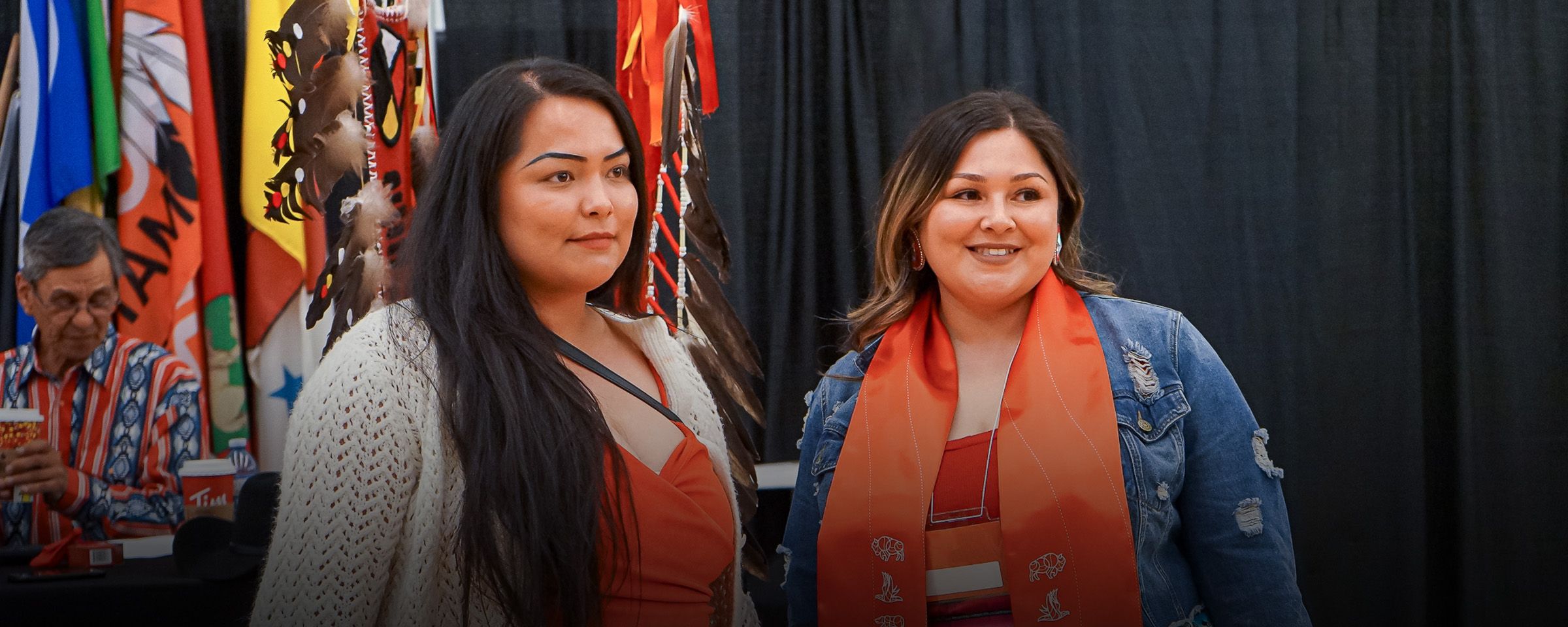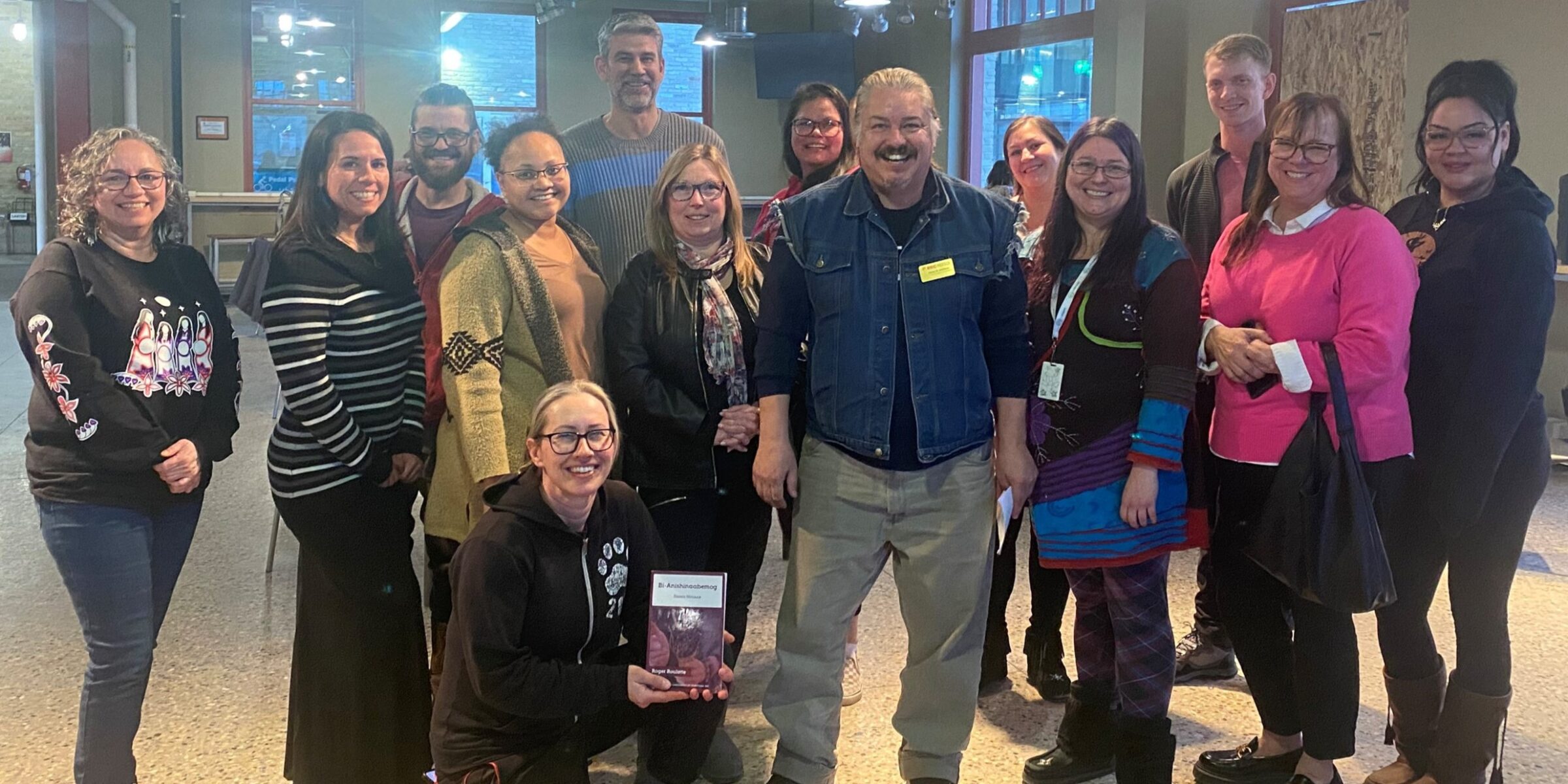Language and Healing – CWB Financial Group Supports Second Delivery of Introduction to Anishinaabemowin (Ojibwe Language) at RRC Polytech
Language reclamation is foundational to reconciliation – for many Indigenous people, learning to speak in their languages is not only an educational endeavour on its own, but is part of a larger healing journey. Culture is integral to identity, and language is integral to culture.
Tabitha Harper, Indigenous Social Entrepreneurship student, says that that she knew minimal Anishinaabemowin prior to taking the course, but being able to practice and learn with other students helped her to feel more confident with incorporating the language in her life. In addition to her classmates, Harper says she speaks with her niece in the language and they learn from each other. While she’s proud to be able to freely engage with one of her cultures, she says that the colonization of Turtle Island needs to be acknowledged as a source of pain for many Indigenous people.
“For me, I recognize the implications of having to learn my language in a classroom, and it is a hard part of our history to confront. The language path is a healing path – it’s learning about yourself and your own path,” said Harper.
Instructor Corey Whitford says now that the second cohort is wrapping up, he has realized that the students that have come through his classroom have made profound impacts on the way he teaches Anishinaabemowin and Anishinaabe ways. He lets the students share what it is that’s most important to them when they are learning the language.
“I’m not an instructor or teacher per se — more to the point, I am a guide. If you show interest, I’ll show you how to walk through that interest. What we’re doing is identifying what students are interested in learning, what they want to know in the language. I might have developed the course, but the students are the ones who make it,” said Whitford.
Whitford says he teaches to meet the needs of students – whether they’re cultural, spiritual or social. He says that he recognizes that teaching and learning are reciprocal.
Alice McKay, who had taken the evening course, is an Ojibwe immersion teacher currently on maternity leave. She says that, as an early childhood teacher, it’s important to see Indigenous teachers teaching Indigenous students.
“Introducing ourselves in our language, one of the first questions you ask a fellow Indigenous person is: ‘who’s your mom?’ ‘Who’s your dad?’ This is how we relate to each other, how we build connections with each other – we know each other through our relationships. I believe wholeheartedly that Indigenous people should be teaching Indigenous children their languages,” said McKay.
McKay says that a lot of the young students she has taught experience systemic oppression, which often manifests through the child welfare system, and many students don’t necessarily know the familial and territorial connections to properly introduce themselves in their language.
“I would take that responsibility upon myself to help these kids find out who they are and where they come from, so they could introduce themselves – so they can have that family connection, that cultural connection,” said McKay.
Language is inherently cultural, and learning language through a cultural lens is integral to an enriched experience for students on their own journeys, especially journeys that involve a lot of healing and self-reflection.
Introduction to Anishinaabemowin, as a standalone course and as an elective in second-year Social Innovation and Community Development, has helped over 100 students strengthen their cultural understanding and their language skills.
Barrier-free access to language education is foundational to cultural reclamation and reconciliation. CWB Financial Group recognized the generational impact this course has and as they strive to create inclusive spaces for success and growth, they partnered with RRC Polytech to ensure students that take Introduction to Anishinaabemowin in Winter and Spring 2024 have free tuition. They prioritize community investments focused on removing barriers for those pursuing skill development and learning and mentorship opportunities.
For more information and to register for Introduction to Anishinaabemowin, generously supported by CWB Financial Group, visit the Program Explorer page.


